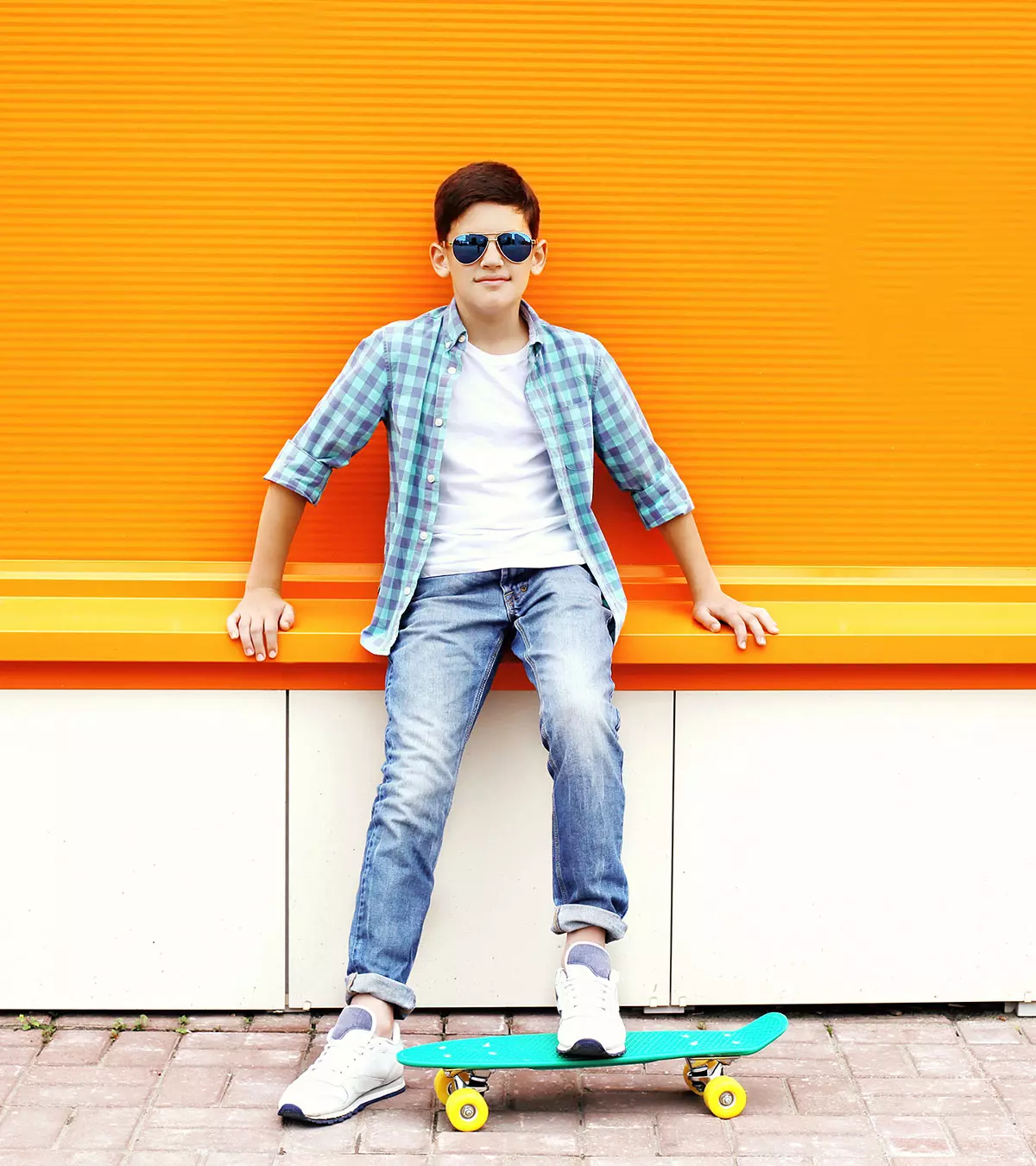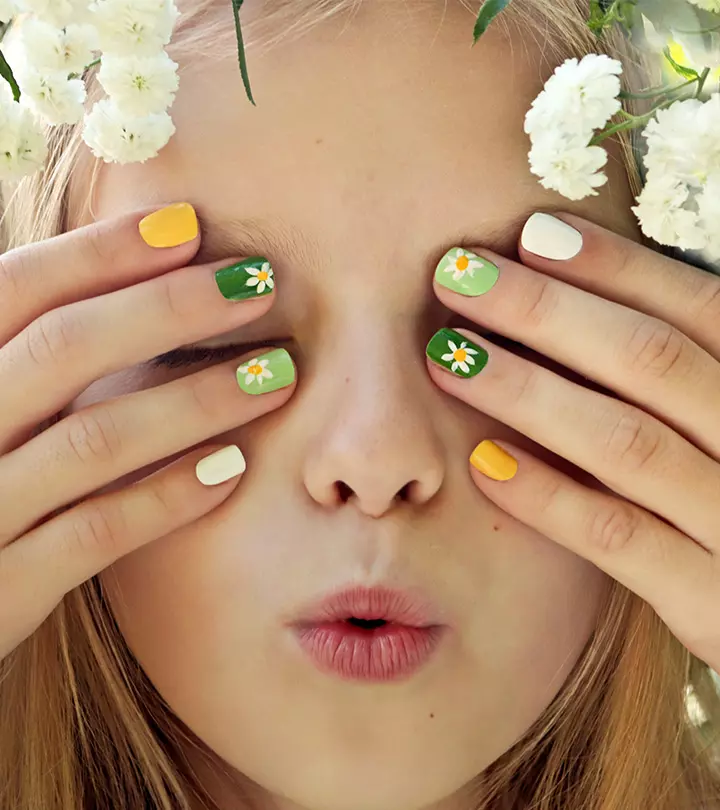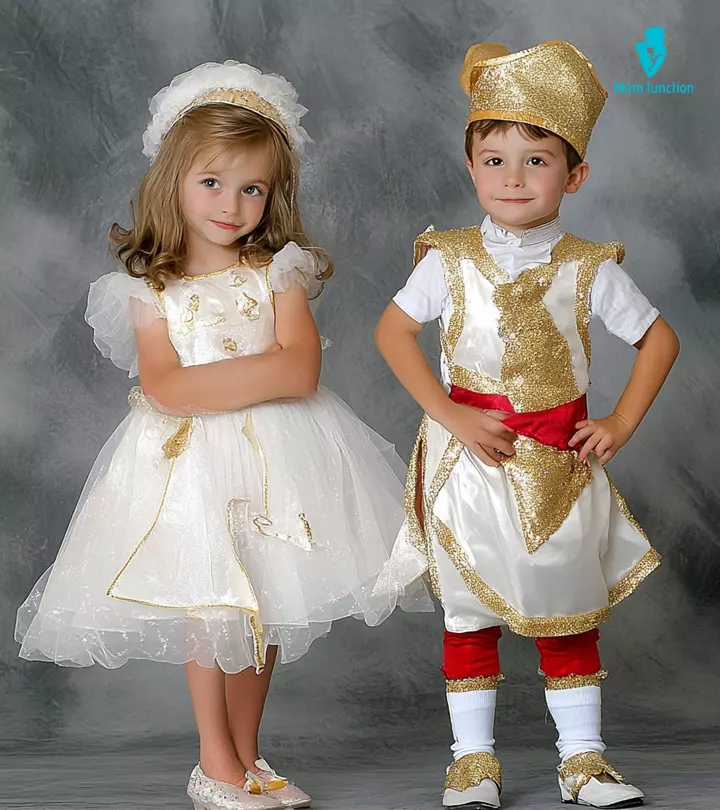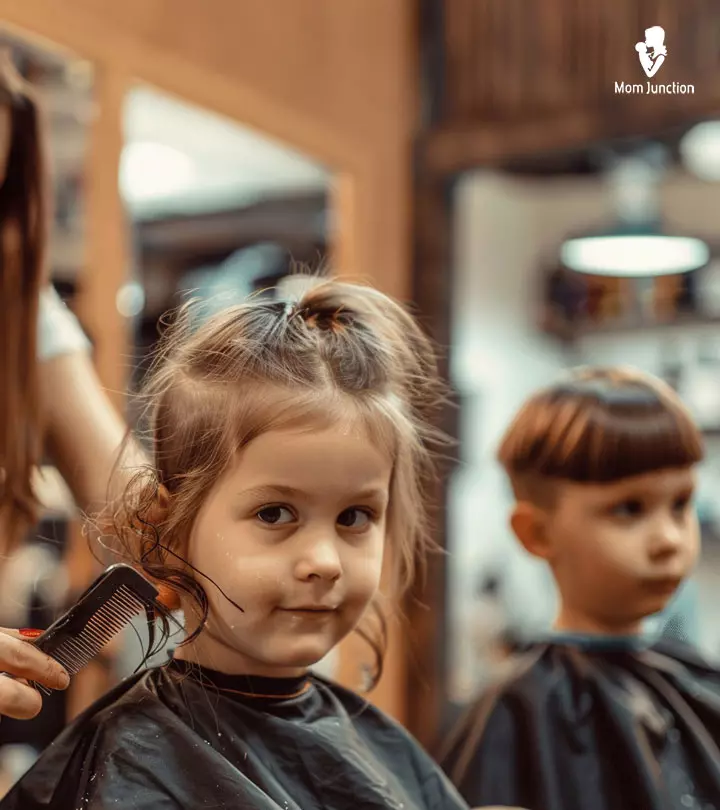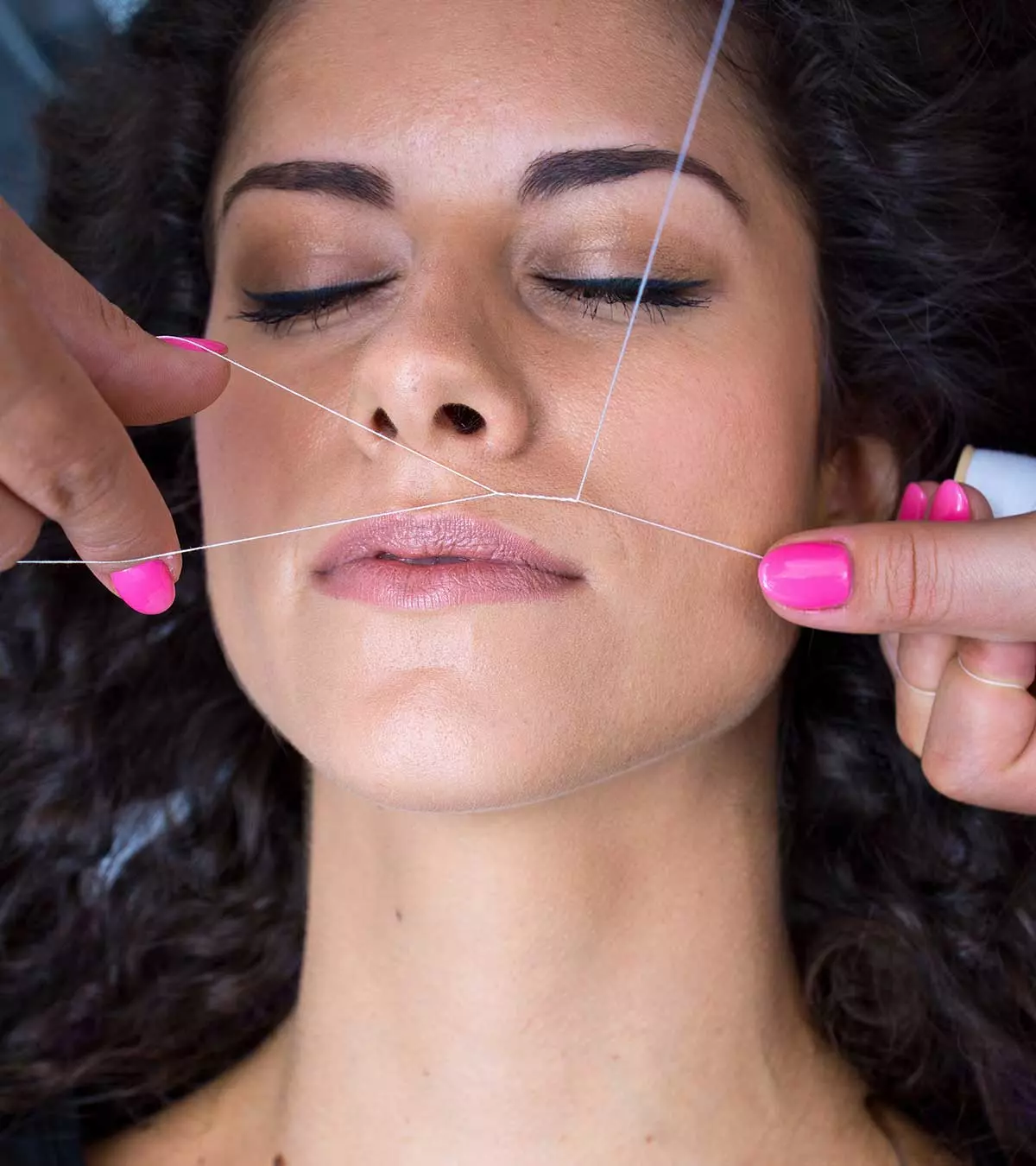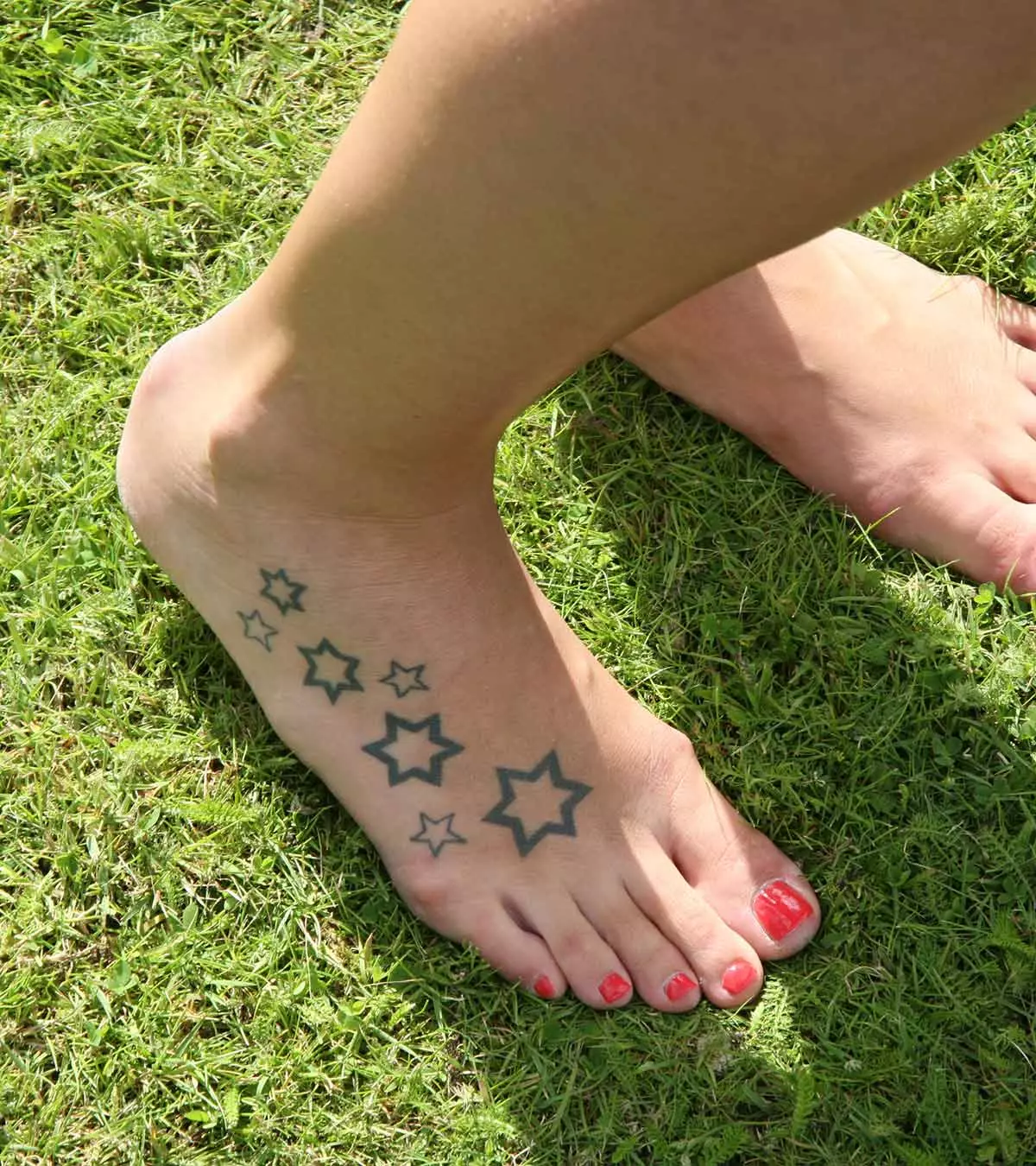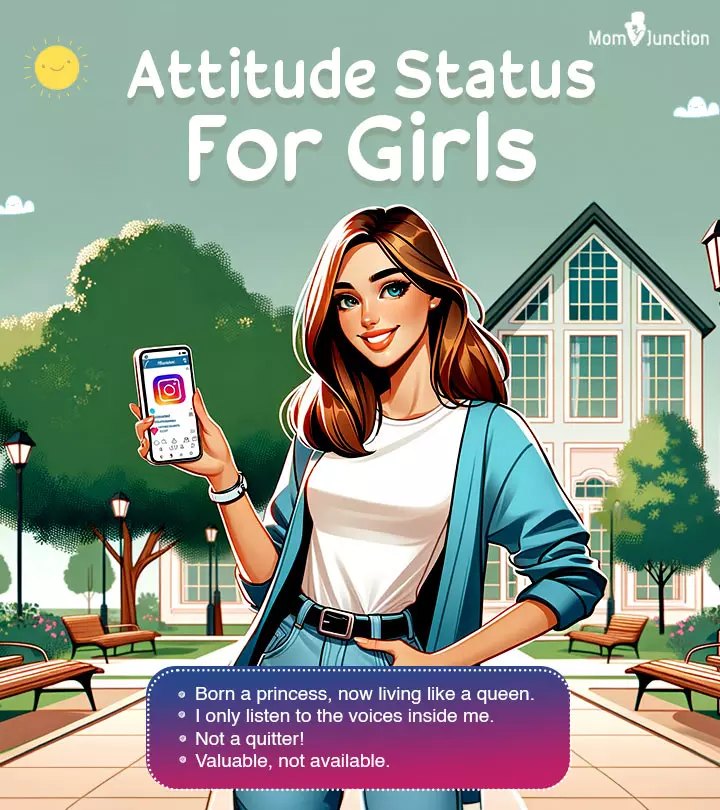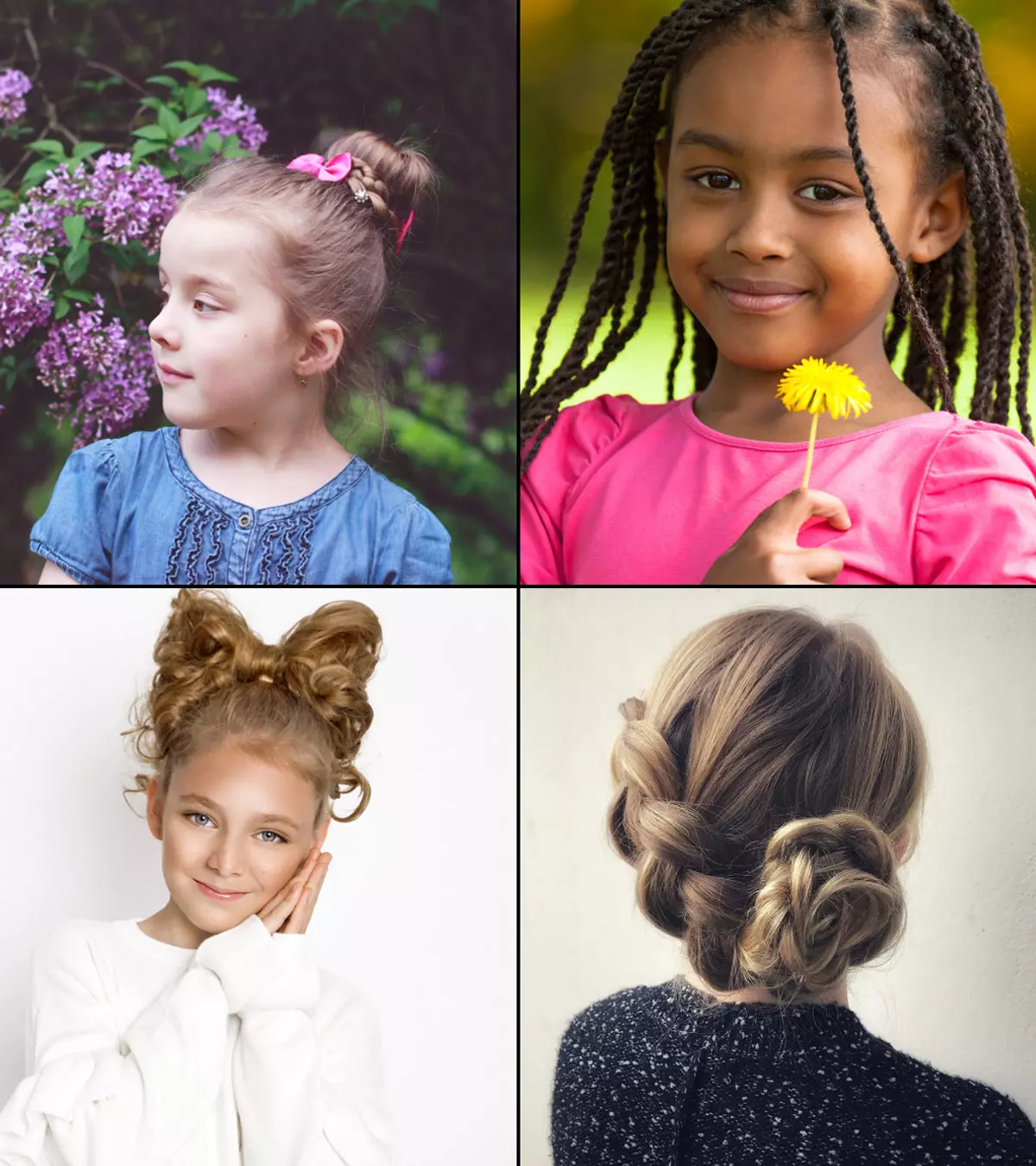
Image: Shutterstock
Have you ever looked at your child’s intense gaze and charming smile and wondered, “What a star?” Perhaps kids’ modeling could be a career you might be thinking of exploring for your child but are not sure yet. Modeling is a glamor and glitz field, filled with exciting opportunities. However, behind the scenes, there is a lot of hard work and commitment that goes into making it a successful career for a child. There are a lot of sacrifices that a child and the parents have to make to be able to meet the needs of the profession. To give you an idea of what it takes to be a child model, continue reading the post to understand the needs and preferences of the field of work. From modeling for editorial and commercial prints to TV and runways, there are several options and opportunities for kids modeling. Discover how parents can be prepared to help and support their child to follow this career path. Also, learn ways to navigate through the complex world of modeling safely.

Key Pointers
- Support your child’s interest in modeling if they are comfortable in front of the camera.
- Be flexible with your schedule to accommodate modeling demands.
- A child with good features, unique looks, a striking personality, and outgoing nature is a good fit for modeling.
- Chances of selection are high if the child fits popular clothing styles, lives near the agency, has a capable parent, or knows someone in the industry.
- Submit your child’s pictures to reputable agencies that only charge fees upon securing work.

Can Your Child Be A Model?
Australia-based child psychologist Emily Hanlon says, “Modeling can offer great opportunities, but a child’s emotional and psychological needs must come first. Open communication, clear boundaries, and a fun-focused approach help protect their well-being.”
Italy-based personal stylist Paola Farina says, “Starting a modeling career young can impact a child’s emotional and psychological development both positively and negatively. On the plus side, it can boost confidence, enhance communication skills, and teach discipline and professionalism. It also fosters resilience in handling rejection or competition. However, the pressure to maintain a certain look and meet industry standards may lead to body image issues or an unhealthy focus on appearance.”
You can initiate your child into modeling only if they like it and are comfortable with it. Ask yourself if being a model is your child’s aspiration or yours.
Niloufar Esmaeilpour, certified therapist from the Greater Vancouver Metropolitan Area says, “Pressures in the industry, such as maintaining high beauty standards and facing public scrutiny, can increase anxiety, self-esteem issues, and an unhealthy focus on appearance. Additionally, exposure to adult situations and expectations can cause emotional stress if a child is not emotionally mature enough to handle them.”
- It is okay for your kid to do modeling as long as they are enjoying it and having fun. But if they are uncomfortable, call it quits.
- Remember that modeling for children is not a money-making venture, and it should not be a source of income for you or your family.
- As a parent, understand that modeling is not all about glamor and a pretty face. It takes hard work, confidence, and patience to get the first gig and then sustain there. Therefore, analyze if your child is willing to take this additional burden along with their education.
- The most important thing is you should not compromise on your child’s needs and rights such as their education, playtime, and relaxation.
Let’s suppose that you and your child have ticked positive on all the above considerations, would that be enough? No, because you need to consider your convenience and availability as well.
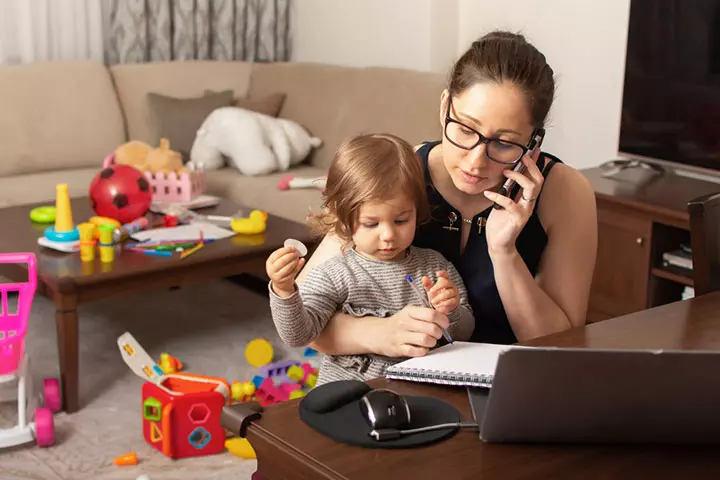
Are You Ready For Your Child’s Modeling Assignments?
Australia-based therapist and mental health educator Dr. Kate Renshaw advises, “Being present and observant allows parents to monitor their child’s comfort and enjoyment during modeling and advocate for their well-being if needed. As the consenting caregiver, carefully review child modeling contracts and seek independent legal advice to ensure children participate in a way that upholds their rights.” Consider these points before you make a decision:
- You will have to undergo a lot of stress and workload, which will be in addition to your career workload.
- Sometimes you would need to keep yourself free for an entire day to take them for auditions, wait there for your turn, and then drive back home.
- If your kid gets selected, it means more breaks from your job. You should be available whenever you get a call and not just during the weekends or in the evenings.
- You need to see if your work schedule is flexible enough to accommodate all these demands.
If you have planned all this and your child is interested too, then you can take a step towards modeling. The first step is to know the traits of a child model.
What Kind Of Modeling Opportunities Are Available For A Child Model?

Child models can find modeling opportunities in a number of fields.
1. Commercial print modeling
Children’s toys and food brands look for child models to be a part of their catalogs, magazine ads, and other forms of print media. If your child enjoys photo shoots, then print modeling could be the category to start with.
2. Editorial modeling
Top fashion brands such as Burberry and Moschino often require child models to launch their new clothing lines. These are exclusive, high-fashion photo shoots that are presented artistically. Having the name of a big brand attached to your child’s portfolio adds weight to their profile.
3. TV modeling
Children have been a part of TV commercials for years. However, this kind of modeling requires the child to be comfortable and interactive in front of a camera. They may or may not have to say a dialogue but will have to act in a certain way as required by the video script of the advertisement.
4. Local fashion shows
Many shopping malls host fashion shows to promote local or new clothing brands for children. Such fashion shows are a good way to help your child gain experience in ramp walking. However, this might require lots of practice. If your child likes to be the center of attention, a ramp walk might be a good field to explore.
How To Create A Portfolio For Child Modeling?
Approaching a modeling agency to find work for your child will require a portfolio. Every brand will have different requirements for the photos they want, so it is good to have a mix of full-length poses and headshots. Here are some tips to make a good portfolio:
- Determine the modeling type: Figure out what kind of modeling is best suited for your child, whether it is commercial, fashion, or catalog modeling. It will help you direct the style and content of the portfolio.
- Hire a photographer: Professional photographers with experience in child modeling portfolios will help capture your child’s best, high-quality photos, enhancing their natural appearance and personality.
- Prepare for the photoshoot: Go for simple, well-fitting, age-appropriate clothes in neutral colors without distracting logos or patterns. Keep your child’s hairstyle simple. Makeup is generally unnecessary for them. Help your child practice natural and relaxed poses before the shoot.
- Conduct the photoshoot: Try to get a good variety of shots against a plain background. For example:
- Headshots: Clear images of the face without any distractions. Keep one with a neutral expression and one with a smiling expression.
- Full-length shots: Photos of your child’s entire body to show their physique and posture.
- Expression and poses: A mix of different expressions and poses to show your child’s versatility.
According to Wilhelmina Kids & Teens, a leading modeling agency for children, it is best to avoid distracting accessories like hats and scarves for the photoshoot. They also advise looking straight into the camera, keeping the chin down, and shooting on an overcast day for better natural lighting (1).
- Select and edit photos: Choose 10-15 images that best represent your child’s range and suit the modeling type you are targeting. Get the pictures edited professionally without altering your child’s appearance.
- Make the portfolio: Create a physical portfolio by arranging the printed photos (typically 8”x10”) in a portfolio book. You can also create a digital or online portfolio to share with agencies and potential clients.
- Add important information: To your child’s portfolio, add their name, age, height, eye and hair colors, and contact information. Also, include a resume if they have any prior modeling experience or training. Update this information regularly as your child’s appearance changes and they gain new experiences. According to Future Faces NYC, a well-known child modeling agency, “In order to maintain your baby’s chances of getting a work assignment; it is really important to keep your photos on the website, up to date (2).”
You can also use the best among these photos to create a comp card or composite card (also called a Z card). These are two-page marketing tools for your child model, which they can use to show off their skills and range as a model.
 Point to consider
Point to considerWhat Are The Chances Of Your Kid Getting A Modeling Job?
Out of 100 submissions, agency directors meet about seven to eight children and work at most with three of them.
Agencies that represent child models from birth to teenage receive several stacks of pictures and letters from parents and out of every day’s pile they generally meet two to three kids.
Your child’s chances of getting selected are high in the below cases:
- The kid fits into popular fashion clothing sizes.
- You live in proximity to the agency’s office.
- You are a capable parent – not pushy, good in handling rejections, can reschedule your day within a short notice, etc.
Your chance of success could be high if you personally know somebody in the industry. They can guide you and maybe connect you with the right people. Ultimately, it depends on your perseverance and preparation.
How To Get Your Child Into Modeling?

- Click some good-quality photos of your little one. The photos need not have to be professionally shot. One headshot and two full-body photographs should be enough to start with.
- After proper research, approach some genuine modeling agencies and share your child’s photographs and details such as age, weight, and height. You can also attend open calls from reputed agencies, which are auditions for modeling for anyone who wants to try it out.
- Share the profiles with multiple agencies. Then you have to wait for casting calls, also known as go-sees.
 Point to consider
Point to consider- They will get back to you if they like the profile, and you will have to take your child for auditions.
- If your child gets selected for the audition, your agency will inform you. After your kid is done with the work, the agency will cut 10 to 20% of the model’s pay.
- Remember that legitimate agencies never ask for money upfront. They only take their cut once your kid gets work. Be wary of such cheats who feed on the excitement of parents. For instance, reputed modeling agency IMG Models states that there are no fees to sign in or apply with them. They do not charge any application or registration fees (3).
- Do not get confused between a model scout and an agency. A scout charges for the photo shoot of your child, which they eventually send to agencies. You can do this on your own.
- Your child may not be earning much from runway modeling. The rates are higher on television and movies. Sometimes, very prestigious magazines or companies pay less but provide good exposure to your kid.
- Do not relocate to a new city or country to kick-start your child’s modeling career as no agency can promise assignments. Alternatively, you can continue sending photos to modeling contests and competitions online.
- For modeling assignments, children are often required to take leave from school. Whenever your child takes a day off from school, keep the permission letter ready as most agencies will ask for it.
Your child may not get an assignment immediately after being selected by an agency. There is a process for that.
How To Prepare Your Child For Modeling Auditions?
In addition to sending photos, several modeling agencies require kids to audition. Here are some general tips to get your child ready for modeling auditions:
- Inform them about the process involved and discuss the environment of an audition eg. they might be surrounded by new people.
- Teach and practice some basic poses and expressions with them.
- Motivate them to be attentive to instructions.
- Teach them to introduce themselves.
- Dress them in comfortable and appropriate clothing.
- Prepare a portfolio with recent photographs.
- Make sure they are well-fed and rested to be confident enough to face the camera.
- Encourage them to keep a positive attitude.
What To Expect After Signing Up With An Agency?

Here is what happens after signing up:
- Go for auditions and go-sees: Your child may have to attend many cast calls before getting selected for their first assignment. These go-sees are usually tiring, and sometimes you may have to stand in a queue with more than 200 children waiting for their turn to strut their best catwalk.
- Additional photos: You may have to expand your child’s portfolio depending on the client’s requirements.
- Quick process: Once you get your turn, the process gets over in a couple of minutes. Often your kid will be asked to try out the outfits.
- The scope of work: Child models mostly work for in-store advertisements, magazines, catalogs, and store circulars.
- Commitment: The work opportunities of your child will greatly depend on your patience and commitment. You may have to attend multiple go-sees in a day or none for several weeks.
How To Strike A Balance Between Childhood Life And Modeling Assignments?
Modeling is a demanding industry, and child models are particularly vulnerable. Due to their age and lack of experience, they are more susceptible to abuse. This abuse is perpetuated when agencies prioritize their interests over the well-being of young models. As a result, many underage models suffer from depression, eating disorders, and financial exploitation (4). Thus, it is essential to create a balance between your child’s personal life and modeling commitments.
Here are some things you should keep in mind:
- Give priority to their education. Coordinate their modeling assignments around school schedules to avoid gaps in schooling. Ensure they participate in school activities and do their homework.
- Set aside time to maintain a playful childhood. Give your child time to play, socialize, and have hobbies. Help them relax with fun activities and avoid over-scheduling.
- Limit the number of assignments and hours of work per week to avoid mental and physical exhaustion. Also, stick to age-appropriate projects that align with your child’s comfort levels.
- Regularly check in with your child to understand their feelings about their modeling career. Watch for signs of stress, exhaustion, burnout, and discomfort.
- Ensure your child gets adequate sleep, nutrition, and exercise even during busy schedules. Listen to them and give them emotional support to cope with the demands and pressures of the industry.
- Let your child express their interest and disinterest regarding assignments. If they need to take a break or no longer enjoy it, let them discontinue modeling.
- Hire a child-friendly manager or agent who ensures your child’s well-being. You may also seek advice from child psychologists, educators, and counselors when needed.
- Above all, prioritize your child’s happiness. Celebrate their successes and milestones, no matter how small or big. Reinforce the message that their worth is not limited to or tied to their modeling career, and you will cherish them regardless.
What You Should Not Do As A Parent If Your Child Is A Model
Egypt-based psychotherapist Ehab Youssef suggests, “In child modeling, kids are often treated as mini-adults, facing pressure to act mature and handle criticism. Some miss out on normal childhood experiences due to work commitments. Parents should prioritize fun over pressure. If your child enjoys it, great! But if they show signs of stress or self-doubt, listen and reassess.”
If your child is in the modeling industry, their well-being must be your top priority. Agencies and designers often exploit minors’ determination and lack of experience. This power imbalance in the industry can be due to the unstable nature of the fashion world, the entry costs for young models, age preferences, geographical barriers, and the promise of stardom (5).
Here are some things you shouldn’t do as a parent to ensure your child’s best interests:
1. Don’t force your child to model: A child’s first priority should be studying and playing. Don’t let their modeling assignments interfere with their academics. Don’t force them to model if they are uncomfortable. Let them make friends and have social interactions appropriate for their age; don’t make their entire identity revolve around modeling.
2. Don’t ignore your child’s feelings: Don’t make them participate in modeling assignments they are uncomfortable with. Listen to them if they have concerns or are reluctant about a specific project.
3. Don’t overlook signs of exploitation: It has been observed that many protections for child performers are ignored in practice, and there are no stringent enforcement mechanisms. It leads to exploitation and systemic abuse in the fashion industry, especially toward underage models (5). So, stay vigilant and protect your child from potential exploitation, abuse, inappropriate behavior, and unfair working conditions. Don’t ignore red flags like signs of exhaustion and discomfort.
4. Don’t overwork your child: Avoid over-scheduling them with excessive work, leaving them with no time to study, participate in their hobbies, play, or socialize. It can lead to burnout and negatively impact their mental and physical health.
5. Don’t criticize or push your child: While it is true that children with distinctive facial features and outgoing personalities are preferred in the fashion industry, don’t criticize your child for not looking or behaving a certain way for assignments. Don’t emphasize their physical appearance over their talents and intrinsic worth.
6. Don’t leave them unsupervised: Unsupervised minors may be vulnerable to inappropriate environments, so they must always be accompanied to shoots, auditions, or events by you or another trusted adult.
7. Don’t push your ambitions onto your child: Don’t project your dreams and expectations onto your child’s modeling career. Although protections exist for child models, child performer laws give parents immense control over their children, which goes against the child’s best interests. Parents often exploit their children for monetary gains and desire for fame (5). So, keep your child’s health and happiness a priority.
8. Don’t force your child to diet: The modeling industry is considered notorious for imposing strict guidelines on how a model looks and weighs. Designers primarily prefer the thin and waif-like bodies of adolescents that they possess because they haven’t hit puberty yet. This preference is because thin and lanky bodies have a hanger-like appearance, allowing viewers to focus on the clothing pieces rather than on the children wearing the clothes (4).
Unrealistic expectations and the pressure to conform can lead young models to develop unhealthy eating habits and disorders. Because minors are particularly impressionable, it is your responsibility as a parent to avoid pushing your child to diet to meet the modeling industry’s standards.
What Do The Child Labor Laws Say?
State regulations govern child labor laws for modeling in the US. At the federal level, the Fair Labor Standards Act (FLSA) sets the minimum age for employment at 14 years for non-agricultural jobs (6). It does not explicitly address modeling, leaving the matter up to state regulations.
State Regulations
State laws regarding child labor in the modeling industry vary significantly. Here are some examples:
California: Child models and any minor under 18 must obtain an entertainment work permit, and their employers must also have a license to employ them. The Labor Commissioner’s Office issues both permits (7). They must adhere to strict working hours depending on their age; for instance, if school is in session, children under 12 can only work on weekends and vacations, but children aged 14-15 can work 3 hours per day outside of school hours (8).
New York: Child models under 18 are classified as child performers, which gives them protections under the New York Labor Law. They require work permits and permits from educational authorities, and performers between 16-17 need an employment certificate. According to the Estates, Powers and Trusts Law, courts require a portion of their earnings to be set aside in a trust account to safeguard it (9).
General considerations
- Most states require child models to have work permits or employment certificates. The requirements and procedures to obtain such licenses vary by state.
- Most states limit a child’s working hours per day and week, depending on whether school is in session.
- Some states, like Alabama and Indiana, require employers to ensure a child’s schooling is not affected by their work. Some also mandate that employers provide educational instructions as well (9).
- Certain states, like California, New York, and Illinois, require a portion of a child’s earnings to be set aside in a trust account, also termed a Coogan Account, to safeguard the child’s finances (10).
What you should do
- Since regulations for child modeling vary by state, consult your state labor department to understand the legal requirements for child modeling.
- Consult an attorney specializing in entertainment and labor law to get personalized guidance to ensure you comply with all laws and regulations.
- Ensure that you work with reputable agencies that enforce child labor laws and prioritize child models’ well-being and legal rights. Do not let your child work for agencies with excessive working hours and inappropriate settings.
- Pay attention to contracts and legal paperwork regarding finances and rights. Don’t let agencies or clients take undue financial advantage of your child.
Kids modeling may be an attractive career choice, but you need to give it a good thought before walking this path. Opt for modeling only if your child enjoys the process and is comfortable before the camera. You should also analyze how your child will manage the modeling assignments and their education, playtime, and other engagements. If you are ready for the effort, you may apply for a modeling career in ad agencies. Agency directors are often attracted to good-looking children or those with unique features. Remember that all children may not get modeling assignments. It should not discourage you. Also, encourage your children to identify their passion and support them in their journey.
Frequently Asked Questions
1. What is the youngest age to start modeling?
You can start modeling your child as young as a few weeks to a few months old. There is no specific age limit because different campaigns necessitate different ages.
2. What should parents keep in mind when selecting a modeling agency for their child?
When choosing a modeling agency, make sure to research the company, including its reputation, work ethic, and modeling team. Also, make sure to read the contract attentively and see if their requirements are suitable for your child and if the company prioritizes the child’s well-being.
3. Should I pay for a child modeling agency?
Most legitimate modeling agencies do not charge application or membership fees to aspiring baby models. Other legitimate fees, however, may exist. So, if your child’s modeling agency demands registration fees, double-check their authenticity.
4. How can modeling help boost a child’s self-esteem?
When opting for a modeling career, children work with professionals around them, giving them a chance to be treated like adults and making them feel responsible. Even if they don’t want to make a career out of it, it is one of the most unique extracurricular activities for kids, which will help them gain valuable life skills. Moreover, when they do a good job, words of appreciation and encouragement will help boost their self-esteem.
5. What are the potential drawbacks or risks associated with child modeling?
Children can often be judged for their looks, skin color, height, and weight when entering a modeling career. These judgments can affect their confidence. Rejections are normal in any career, but children may take them negatively, making them self-conscious and anxious. However, parents can always guide their children and support them in making proper decisions, ensuring their children’s well-being.
6. Can children modeling help them develop discipline and professionalism?
Yes, since children are likely to work around adults who are professionals and work with utmost seriousness, they are likely to pick up habits from them, which will help develop discipline and professionalism.
7. What should I include in my child’s modeling portfolio?
A child’s modeling portfolio typically consists of one or two headshots, two or three full-length body shots, a resume consisting of modeling experience, and other information such as your child’s physical description, traits, and skills. To make the portfolio stand out, you can also add information regarding any special training that your child may have undergone as a model.
8. What are the signs that modeling might not be right for my child?
Modeling is a fun but difficult job that requires a certain type of personality to enjoy and thrive in such a dynamic industry. A shy child who does not like meeting new people and does not take instructions well might not enjoy modeling. If they do not like facing a camera and lack the confidence to perform in front of an audience, they might not be suitable for modeling. It would not be better to force a child into modeling when they are not liking it.
Infographic: Characteristics That Agencies Look For In A Child Model
If you plan for your child to walk down the path of modeling and would like to start early, the following infographic can be helpful. Here, we have included a list of characteristics most child model recruiters look for while selecting children. Scroll through!
Some thing wrong with infographic shortcode. please verify shortcode syntax
Illustration: Kids Modeling: Can Your Kid Be A Model And How?

Image: Stable Diffusion/MomJunction Design Team
Modeling is not a cup of tea for everyone. However, with these five unique poses, your child can display a killer masquerade for every photo session.
References
- Photo Tips.
https://wilhelminakidsandteens.com/photo-tips/ - Future Faces NYC.
https://www.futurefacesnyc.com/?viewPage=19 - FAQ for Under 18 Applicants.
https://www.imgmodels.com/under-18-faq - Jordyn Sifferman; (2025); Social Responsibility in Advertising: Extending Protections for Children in California’s Modeling Industry.
https://digitalcommons.law.seattleu.edu/cgi/viewcontent.cgi?article=1990&context=sjsj - Anais V. Paccione; (2017); On Trend: Continuing the Effort to Inspire Fashion Industry Reform and Protect Underage Fashion Models.
https://core.ac.uk/download/pdf/151527684.pdf - Age requirements.
https://www.dol.gov/general/topic/youthlabor/agerequirements - Information on Minors and Employment.
https://www.dir.ca.gov/dlse/dlse-cl.htm - California Child Labor Laws 2013.
https://www.dir.ca.gov/dlse/ChildLaborLawPamphlet.pdf - Child Entertainment Laws As of January 1 2025.
https://www.dol.gov/agencies/whd/state/child-labor/entertainment - Coogan Law.
https://www.sagaftra.org/membership-benefits/young-performers/coogan-law
Community Experiences
Join the conversation and become a part of our nurturing community! Share your stories, experiences, and insights to connect with fellow parents.
- Niloufar Esmaeilpour is a registered clinical counsellor with the British Columbia Association of Clinical Counsellors (R.C.C.) and the founder of Lotus Therapy in Vancouver, Canada. She holds a graduate degree in Psychology with a specialization in Marriage and Family Therapy and is a fully certified EMDR therapist. Niloufar has more than a decade of experience in supporting adults and families through therapeutic counseling.
 Niloufar Esmaeilpour is a registered clinical counsellor with the British Columbia Association of Clinical Counsellors (R.C.C.) and the founder of Lotus Therapy in Vancouver, Canada. She holds a graduate degree in Psychology with a specialization in Marriage and Family Therapy and is a fully certified EMDR therapist. Niloufar has more than a decade of experience in supporting adults and families through therapeutic counseling.
Niloufar Esmaeilpour is a registered clinical counsellor with the British Columbia Association of Clinical Counsellors (R.C.C.) and the founder of Lotus Therapy in Vancouver, Canada. She holds a graduate degree in Psychology with a specialization in Marriage and Family Therapy and is a fully certified EMDR therapist. Niloufar has more than a decade of experience in supporting adults and families through therapeutic counseling. - Dr. Kate Renshaw, the ‘Doctor of Play Therapy’, is the founder and director of Play and Filial Therapy. She has worked with children, families, teachers, and schools for over 20 years and as a university educator for close to 10 years. Dr. Renshaw remains dedicated to providing therapy for children and families whilst educating the Play and Arts therapists of the future across Australia (with Ikon Institute) and around the world (with universities and tertiary institutes in Wales and Ireland).
 Dr. Kate Renshaw, the ‘Doctor of Play Therapy’, is the founder and director of Play and Filial Therapy. She has worked with children, families, teachers, and schools for over 20 years and as a university educator for close to 10 years. Dr. Renshaw remains dedicated to providing therapy for children and families whilst educating the Play and Arts therapists of the future across Australia (with Ikon Institute) and around the world (with universities and tertiary institutes in Wales and Ireland).
Dr. Kate Renshaw, the ‘Doctor of Play Therapy’, is the founder and director of Play and Filial Therapy. She has worked with children, families, teachers, and schools for over 20 years and as a university educator for close to 10 years. Dr. Renshaw remains dedicated to providing therapy for children and families whilst educating the Play and Arts therapists of the future across Australia (with Ikon Institute) and around the world (with universities and tertiary institutes in Wales and Ireland). - Paola Farina is a personal and event stylist and a certified image consultant with 7 years of experience. She collaborates with individuals and companies. After graduating from classical studies, she won a scholarship from Image Fashion & Communication, the first Italian institute for training professional editors and stylists. In 2018, she launched Paola Farina Styling, a company that specialized in personal and event styling. She is also the official supplier of Fiera Milano, a public body responsible for the development of projects totally dedicated to fashion and design. She specialized in image consultancy at the FIT in New York and lived in Amsterdam and Dublin before coming back to Italy.
 Paola Farina is a personal and event stylist and a certified image consultant with 7 years of experience. She collaborates with individuals and companies. After graduating from classical studies, she won a scholarship from Image Fashion & Communication, the first Italian institute for training professional editors and stylists. In 2018, she launched Paola Farina Styling, a company that specialized in personal and event styling. She is also the official supplier of Fiera Milano, a public body responsible for the development of projects totally dedicated to fashion and design. She specialized in image consultancy at the FIT in New York and lived in Amsterdam and Dublin before coming back to Italy.
Paola Farina is a personal and event stylist and a certified image consultant with 7 years of experience. She collaborates with individuals and companies. After graduating from classical studies, she won a scholarship from Image Fashion & Communication, the first Italian institute for training professional editors and stylists. In 2018, she launched Paola Farina Styling, a company that specialized in personal and event styling. She is also the official supplier of Fiera Milano, a public body responsible for the development of projects totally dedicated to fashion and design. She specialized in image consultancy at the FIT in New York and lived in Amsterdam and Dublin before coming back to Italy. - Emily Hanlon is a clinical psychologist specializing in child and adolescent mental health. She is the founder of The Playful Psychologist, a platform dedicated to supporting psychologists, parents, and educators through evidence-based resources and professional development. Emily focuses on helping young people navigate emotional regulation, self-esteem, and social development in a world that often places external pressures on their identity.
 Emily Hanlon is a clinical psychologist specializing in child and adolescent mental health. She is the founder of The Playful Psychologist, a platform dedicated to supporting psychologists, parents, and educators through evidence-based resources and professional development. Emily focuses on helping young people navigate emotional regulation, self-esteem, and social development in a world that often places external pressures on their identity.
Emily Hanlon is a clinical psychologist specializing in child and adolescent mental health. She is the founder of The Playful Psychologist, a platform dedicated to supporting psychologists, parents, and educators through evidence-based resources and professional development. Emily focuses on helping young people navigate emotional regulation, self-esteem, and social development in a world that often places external pressures on their identity. - Ehab Youssef is a licensed clinical psychologist, mental health researcher and writer at Mentalyc. He has done MSc in Psychology at the University of Groningen and worked as a psychotherapist in Luxembourg and Cairo. Ehab currently works as a psychology AI researcher at Mentalyc, where he applies his expertise in psychology and artificial intelligence to develop innovative solutions for mental health care.
 Ehab Youssef is a licensed clinical psychologist, mental health researcher and writer at Mentalyc. He has done MSc in Psychology at the University of Groningen and worked as a psychotherapist in Luxembourg and Cairo. Ehab currently works as a psychology AI researcher at Mentalyc, where he applies his expertise in psychology and artificial intelligence to develop innovative solutions for mental health care.
Ehab Youssef is a licensed clinical psychologist, mental health researcher and writer at Mentalyc. He has done MSc in Psychology at the University of Groningen and worked as a psychotherapist in Luxembourg and Cairo. Ehab currently works as a psychology AI researcher at Mentalyc, where he applies his expertise in psychology and artificial intelligence to develop innovative solutions for mental health care.
Read full bio of Harshita Makvana
Read full bio of Deepa Thomas
Read full bio of Deyasini Biswas






